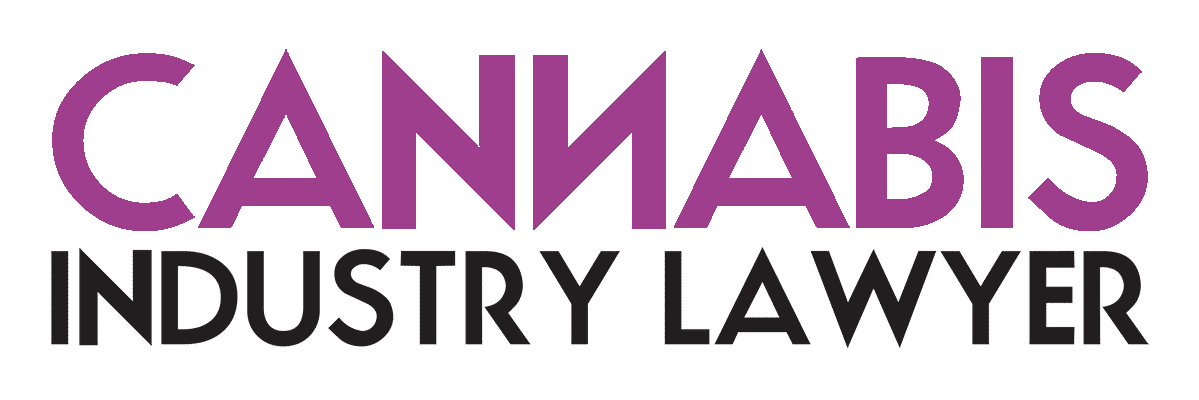The Wisconsin Marijuana Legalization Bill has the potential to bring significant opportunities for entrepreneurs in the cannabis industry. In this comprehensive guide, we will delve into the details of the bill, assess its chances of passing, and explore how it may affect aspiring cannabis business owners. Stay tuned for valuable insights and expert analysis on navigating Wisconsin’s evolving marijuana landscape.
Overview of the Wisconsin Marijuana Legalization Bill
The Wisconsin Marijuana Legalization Bill, introduced by Democratic Senator Melissa Agard, aims to allow adults 21 and over to possess, purchase, and consume marijuana for recreational use. It also seeks to establish a state-regulated cannabis industry and impose taxes on producers, retailers, and lounges. Additionally, the bill includes a community reinvestment grant fund that would allocate 60% of tax revenue generated to support programs in communities impacted by the war on drugs.
The Wisconsin Marijuana Legalization Bill aims to not only legalize recreational use of marijuana for adults, but also establish a state-regulated cannabis industry and allocate 60% of tax revenue generated to support communities impacted by the war on drugs.
Under this proposed legislation, individuals would be able to cultivate up to 12 cannabis or hemp plants at home for personal use. Cannabis consumption lounges would be permitted with local control. The bill also addresses criminal penalties for underage possession of marijuana and expungement processes for non-violent convictions related to cannabis offenses. While facing opposition due to its Republican-controlled legislature, Senator Agard remains optimistic about the bill’s potential passage given high public support for legalization in Wisconsin.
Allowing Possession, Purchase, and Consumption of Marijuana
The Wisconsin marijuana legalization bill proposes the following changes:
- Legalization of recreational marijuana for individuals aged 21 and older.
- Regulations on personal possession limits.
- Permitted locations for consumption.
Under this proposed bill, adults would be allowed to possess, purchase, and consume marijuana for recreational purposes. The legislation also establishes a state-regulated cannabis industry with taxes imposed on producers, retailers, and lounges. Possession of more than five ounces of cannabis would no longer result in felony charges. Additionally, the bill allows for the growth of up to 12 cannabis plants at home and permits cannabis consumption lounges under local control.
Establishing a State-Regulated Cannabis Industry
Licensing requirements for cultivation, processing, distribution, and retail businesses are a key aspect of establishing a state-regulated cannabis industry. These requirements ensure that businesses operate within legal boundaries and adhere to necessary regulations.
Compliance with quality control standards is crucial in the cannabis industry to guarantee product safety. Implementing stringent quality control measures promotes consumer confidence and protects public health.
Tracking systems play a vital role in ensuring product safety within the state-regulated cannabis industry. These systems help monitor the entire supply chain from cultivation to retail, allowing for traceability and accountability throughout the process.
Imposing Taxes on Producers, Retailers, and Lounges
Tax rates applied to different stages of the supply chain will be a key component of the Wisconsin marijuana legalization bill. Producers will face a 15% excise tax, while retailers and lounges will be subject to a 10% tax on cannabis sales. This revenue allocation is an important feature, with 60% of the generated taxes going towards community reinvestment grant funds aimed at supporting programs and services in communities disproportionately impacted by the war on drugs. To ensure effective implementation, mechanisms for tax collection will also be put in place.
Overall, this comprehensive guide provides entrepreneurs looking to start or operate a cannabis business in Wisconsin with valuable insights into the proposed marijuana legalization bill. By understanding these crucial aspects such as taxation rates throughout the supply chain, revenue allocation for public health programs or education initiatives, and effective tax collection mechanisms, entrepreneurs can navigate this new landscape confidently and make informed decisions for their businesses’ success.
Community Reinvestment Grant Fund
The allocation process for community reinvestment funding aims to support programs and services in communities that have been disproportionately affected by cannabis prohibition, addressing past injustices. These investments in social equity programs seek to promote economic opportunities and provide assistance to those who have been impacted the most. By supporting these communities, the grant fund aims to achieve a more democratic and equitable society.
Home Cultivation and Consumption Lounges
Permitting home cultivation for personal use, the Wisconsin marijuana legalization bill would allow individuals to grow up to 12 cannabis plants at home. This provides an opportunity for individuals to cultivate their own supply and exercise personal choice in consumption.
Regulations on the number of plants allowed per household ensure that cultivation remains within reasonable limits. Allowing up to 12 plants strikes a balance between personal use and preventing excessive production that could lead to illegal distribution.
Licensing requirements for operating consumption lounges would be subject to local control. This allows communities to have a say in where and how these establishments operate, ensuring responsible consumption venues while promoting economic growth within the industry.
Penalties for Underage Possession and Felony Charges
Fines and community service are the penalties for underage possession of marijuana under the Wisconsin legalization bill. Selling marijuana to minors carries enhanced penalties, aimed at deterring individuals from engaging in such activities. Repeat offenses or large-scale distribution of cannabis can result in felony charges, imposing severe legal consequences on offenders.
Expungement for Prior Convictions
Process and eligibility criteria for expunging prior marijuana-related convictions: The Wisconsin marijuana legalization bill includes provisions to automate the expungement process for individuals with non-violent cannabis convictions on their records. This means that those with prior convictions will have a streamlined pathway to clear their records of these offenses, providing them with a fresh start.
Benefits of expungement in terms of employment and business opportunities: Expungement can open up new doors for individuals by removing barriers to employment and business opportunities. With a clean record, those who have had prior marijuana-related convictions can pursue careers in the emerging cannabis industry without being hindered by their past, allowing them to contribute positively to this growing sector.
Support services available to assist individuals with the expungement process: To assist individuals seeking expungement under the Wisconsin marijuana legalization bill, various support services are available. These services provide guidance and assistance throughout the process, ensuring that eligible individuals understand how to navigate through expungement proceedings successfully.
Chances of the Bill Passing
The Wisconsin marijuana legalization bill faces an uphill battle in the Republican-controlled legislature. While public support for marijuana legalization is high, some Republican lawmakers remain opposed to the bill. However, there are also several Republicans who have expressed support for it, giving hope that it may be taken seriously and have a chance of passing.
Public Support and Republican Lawmaker Opinions
Growing Public Support for Marijuana Legalization:
- Public support for marijuana legalization in Wisconsin is at an all-time high, creating momentum for the passage of the marijuana legalization bill.
- Entrepreneurs looking to start or operate a cannabis business can take advantage of this growing public support by positioning themselves in this emerging market.
The Shift in Republican Lawmaker Opinions on Cannabis:
- Several Republican lawmakers have expressed their support for the marijuana legalization bill, signaling a shift in opinions within the party.
- This change provides opportunities for entrepreneurs to collaborate with and gain bipartisan support from lawmakers who are open to cannabis legislation.
The Importance of Highlighting Economic Benefits:
- In addition to racial justice and personal freedom arguments, emphasizing the economic benefits of marijuana legalization may help sway Republican lawmakers.
- By showcasing job creation, tax revenue generation, and potential entrepreneurship opportunities, entrepreneurs can strengthen their case and build alliances with key decision-makers.
Potential Opposition and Uphill Battle
Concerns Raised by Opponents of Marijuana Legalization:
- Potential increase in drug addiction and substance abuse
- Negative impact on public health and safety
- Fear of impaired driving accidents
Addressing Misconceptions and Providing Evidence-based Arguments:
- Highlighting research that shows marijuana can be used as a safer alternative to opioids for pain management
- Presenting data from states where marijuana is legal, showing no significant increase in crime rates or youth usage
- Emphasizing the potential economic benefits, such as job creation and tax revenue
Strategies to Overcome Political Resistance:
- Building coalitions with lawmakers who are already supportive of marijuana legalization
- Engaging with community leaders and organizations to educate them about the benefits of legalization
- Presenting the bill as a matter of racial justice, economic opportunity, and personal freedom
Implications for Entrepreneurs
1. The Wisconsin marijuana legalization bill presents a significant opportunity for entrepreneurs looking to enter the cannabis industry. With the establishment of a state-regulated cannabis market, there is potential for business growth and profitability.
2. Entrepreneurs should be aware of the regulatory framework and tax implications outlined in the bill. Understanding these requirements will be crucial in ensuring compliance and avoiding penalties, while also planning for taxes on production and sales.
3. The community reinvestment grants funded by cannabis tax revenue provide an avenue for entrepreneurs to contribute positively to communities disproportionately impacted by the war on drugs. This could enhance public perception and support for new businesses in this sector, creating additional opportunities.
4. It is important to stay informed about the progress of this bill as it faces opposition from some Republican lawmakers. Monitoring its developments will allow entrepreneurs to adapt their plans accordingly based on potential changes or delays in its passage.
Starting or Operating a Cannabis Business
Licensing Requirements and Application Process in Wisconsin: Entrepreneurs looking to start or operate a cannabis business in Wisconsin will need to navigate through the state’s licensing requirements and application process. This includes submitting detailed business plans, financial statements, security measures, and proof of compliance with regulatory standards.
Compliance with Regulatory Standards: Operating a cannabis business requires strict adherence to regulatory standards set by the state. This includes maintaining proper record-keeping, implementing robust security protocols, ensuring product safety through testing and labeling requirements, and complying with advertising restrictions.
Developing a Solid Business Plan for Success: A well-developed business plan is crucial for success in the cannabis industry. Entrepreneurs should outline their target market, competitive analysis, marketing strategies, financial projections, as well as contingency plans for potential challenges. It is important to demonstrate knowledge of industry trends and consumer demand while also addressing concerns related to legal compliance and sustainability.
Understanding Regulatory Framework and Taxes
Wisconsin’s cannabis laws are undergoing a significant change with the introduction of a new bill to legalize marijuana for recreational use. The proposed legislation includes provisions for establishing a state-regulated cannabis industry and implementing taxation policies. Under the bill, marijuana producers would be subject to a 15 percent excise tax, while retailers and lounges would pay a 10 percent tax on sales. Additionally, the bill aims to support communities disproportionately impacted by drug-related issues through community reinvestment grants funded by cannabis taxes. Navigating these regulations will be crucial for entrepreneurs looking to enter Wisconsin’s emerging cannabis market.
Opportunities in the Wisconsin Cannabis Market
Identifying Target Customer Segments:
- Analyze demographics, interests, and behaviors to identify target customer segments.
- Tailor products and marketing strategies to meet the specific needs of each segment.
‘Seed to Sale’ Supply Chain Opportunities:
- Explore opportunities in the cultivation, processing, distribution, and retail sectors of the supply chain.
- Develop strategic partnerships and innovative solutions for efficient seed-to-sale operations.
Exploring Ancillary Services for the Industry:
- Consider providing services such as consulting, marketing/advertising, farming equipment software development, and top security systems.
- Support cannabis businesses with specialized expertise to enhance their operations.
If you need guidance and advice on how to navigate the cannabis industry, do not hesitate to contact our team of experts.






